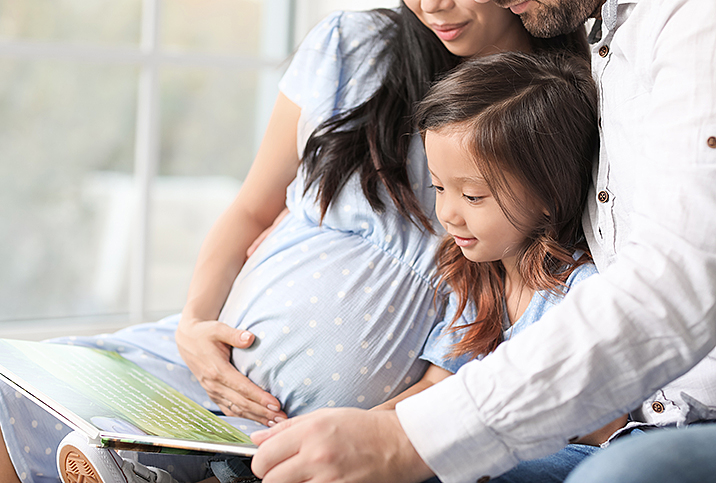Top Pregnancy Fears and How to Combat Them

Life changes can cause excitement and mental upheaval as you face the unknown, and one of the most significant life changes you can experience is pregnancy.
Constant physical changes and the stress of changing your life once your baby arrives can take you on a wild ride of emotions. Combined with hormonal fluctuations, this is a perfect storm for developing fears.
"It's normal to be fearful when you are pregnant, and it's normal for your partner to experience these fears, too," said Christina Gabel, a certified nurse-midwife with Providence Mission Hospital in Mission Viejo, California.
Many fears during pregnancy are common, while others are specific to certain groups of people. Some of these fears are unavoidable, but there are some ways to quell them. In other cases, fears can be indications of healthcare system shortcomings in providing care to marginalized people.
Some fears are more common than others
Pregnancy fears can be mildly anxiety-forming or severe, depending on the person's experiences and the type of fear they may have. Many fears are based on stories from friends and relatives or lived experiences from past pregnancies.
Some of the most common pregnancy fears include being unable to make it to the hospital on time, miscarriage, premature birth and the baby's health.
Kenosha Gleaton, M.D., an OB-GYN in Charleston, South Carolina, and medical advisor at Natalist, which sells fertility and pregnancy products, said incredibly painful labor, pooping during labor, perineum tearing and having an unplanned C-section are among the top fears she hears about in her practice.
Gabel hears fears about post-baby body image, not being a good mother and the ability to breastfeed.
Hannah (who requested her real name be withheld for privacy), from Montreal, still holds fears developed from past traumatizing birth experiences.
"My first pregnancy, I was mainly scared of giving birth, and my birth experience was truly horrible. I had to have surgery after, blood transfusion and stayed in the hospital for a week [it was a vaginal birth]. My second pregnancy was a stillbirth at five months of pregnancy," Hannah said.
Her third pregnancy was a twin pregnancy. One twin died at eight weeks pregnant and the other was able to be carried to term.
"It was a pregnancy riddled with anxiety and fear. Honestly, all this has and continues to affect me daily. I didn't seek professional help, but I know at some point, I have to," she said.
Overcoming these fears can be extremely challenging for people who've lived through traumatizing birth experiences. These people must be provided with proper services, including an understanding care provider and mental health support.
Not all fears are created equal
For marginalized people, pregnancy fears can be compounded by insensitivities and lack of appropriate care. For Ashley McKitterick, a 35-year-old woman in a same-sex relationship who was 23 weeks pregnant when we spoke to her, the extent of these challenges went beyond her expectations.
"Our process started last summer and it involved lots of appointments. I got pregnant on my fourth IUI attempt in the fall," she said, referring to intrauterine insemination. "Unfortunately, my fiancée wasn't allowed into any appointment."
McKitterick, who lives in Montreal, explained this refusal was due to COVID-19 restrictions. But over the course of her dozen or so appointments, she saw male partners present, because they were providing sperm.
"We used donor sperm, so she couldn't be in any appointment. This was hard! She came to every appointment and waited outside or in the car for me," McKitterick said.
For McKitterick, this situation was especially difficult because she and her partner were going through fertility treatments and emotional support was necessary.
"So far, fortunately, she has been allowed into one appointment. We found out that I was pregnant with twins around the 10-week mark, but in the same appointment found out one of them wasn't developing. I'm so thankful that she was able to be present for that appointment," she recalled.
These outdated policies deny nonheterosexual couples the same experiences and support they deserve, increasing fears for these couples that they won't have their needs met or receive the support they require.
McKitterick said she introduced her partner as the other parent, fiancée and wife, but the people involved with their care have called her a friend or support person.
"It's just been a lot to advocate for. We just want to live the regular parent experience with the regular nervousness and anxieties that come along with it. It's such an exciting time, but we are surprised that we seem like such a new phenomenon. It makes us very nervous about future hospital appointments and deliveries. We just so want her to be treated as any other parent would," McKitterick said.
For Corrica Malcolm, a 27-year-old, her fears stemmed from being a Black woman and fully aware of the extreme disparity between maternal death rates for Black women and white or Hispanic women.
"A lot of my anxiety came from hearing how Black women were dying at a very alarming rate. It was scary. Since, I've been searching for a Black doctor just to stay on the safe side," she said.
Malcolm, an immigrant to Canada, expressed that one of her fears came true.
"As an immigrant woman married to a Canadian man living in a country alone with no family, I was also afraid of becoming a single mother during that time, and here I am, a single mother. I remembered having nightmares about that," she said.
The experiences of women such as Malcolm and McKitterick are clear examples of where the medical system and society need more action to address the types of pregnancy fears that are unfairly affecting the lives of some women more than others.
Tips for managing fears
For some fears, such as a fear of not making it to the hospital in time to give birth, there are straightforward, if not simple, ways you can reduce their hold on you.
"To help settle this fear, pack your birthing bags in advance and keep them in your car, create a solid plan for child care or pet care, and if you live more than 45 minutes away from the hospital, be sure to notify your healthcare provider at the first signs of labor," Gleaton said.
For more general fears and anxiety, practicing self-soothing and self-care can help.
"If you are feeling anxious, try meditating with a free app, taking a calming walk with a close friend or your partner, or reading a book," Gabel suggested. "Staying active, whether through exercise or activities you enjoy, such as meals with friends, knitting or gardening, can also help. Lastly, sharing your feelings with your partner and close family members you trust will help you focus your energy on what is in your complete control."
Malcolm said she helped manage her fears by researching her symptoms, options and experiences, and now she is looking for a Black doctor who may be more sensitive and understanding of where she's coming from.
Express your fears with your care provider
A suitable care provider should be open to listening to your fears, no matter how small.
"It's important to know that your doctor or midwife is available to provide reassurance throughout your pregnancy, even if that means more frequent ultrasounds or helping you and your partner understand the source, or sources, of your fears," Gabel confirmed.
If your doctor or midwife seems unapproachable or insensitive, do not be afraid to look elsewhere if you can. And don't forget the power of knowledge.
"Learn as much as possible to have an empowered birth experience," Gleaton advised.
Researching and informing yourself on pregnancy outcomes and your rights can help alleviate fears.
"Remember, the majority of pregnancies end with the birth of a healthy baby," Gabel concluded.




















